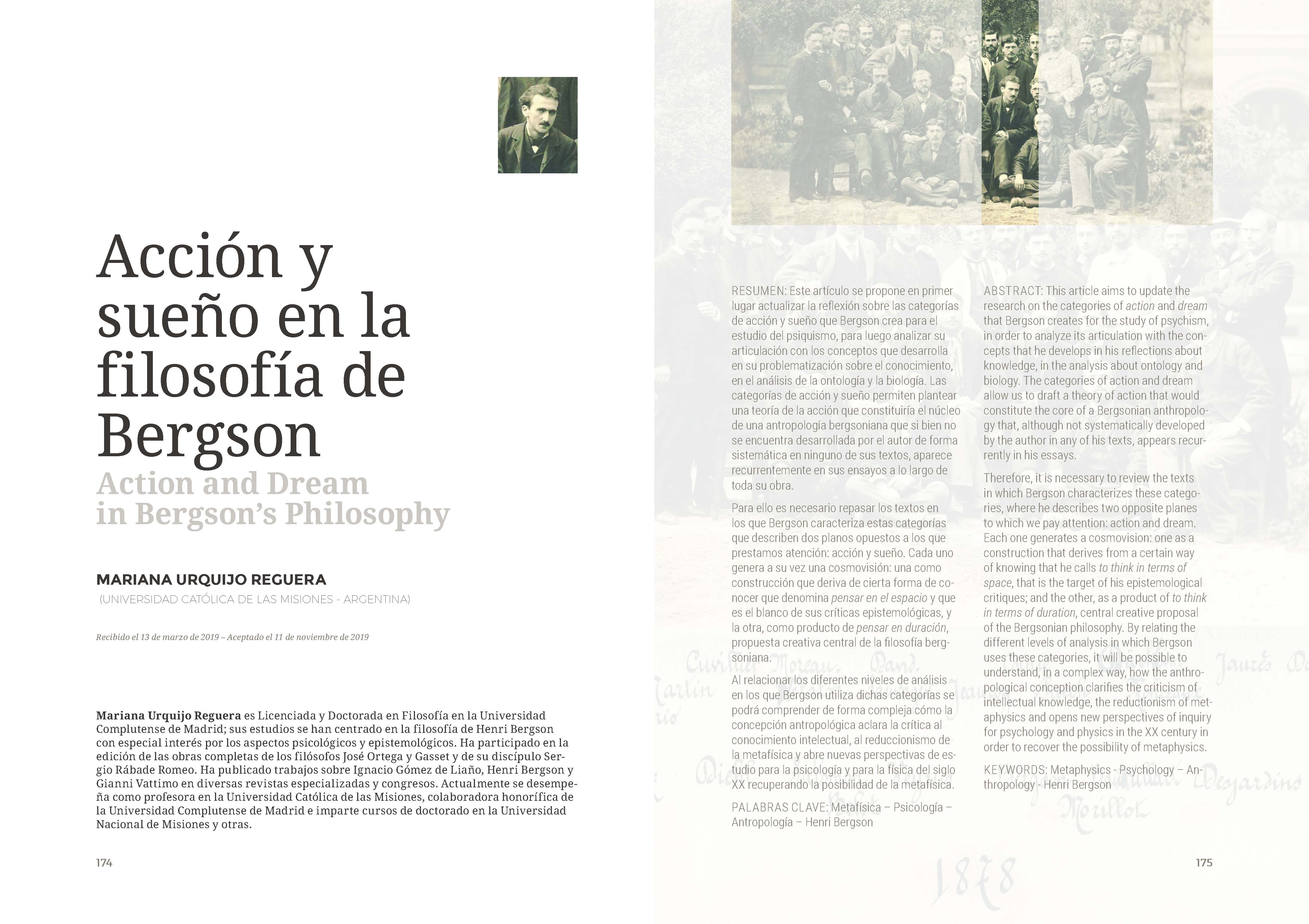Acción y sueño en la filosofía de Bergson
Keywords:
Metaphysics - Psychology – Anthropology - Henri BergsonAbstract
This article aims to update the research on the categories of action and dream that Bergson creates for the study of psychism, in order to analyze its articulation with the concepts that he develops in his reflections about knowledge, in the analysis about ontology and biology. The categories of action and dream allow us to draft a theory of action that would constitute the core of a Bergsonian anthropology that, although not systematically developed by the author in any of his texts, appears recurrently in his essays. Therefore, it is necessary to review the texts in which Bergson characterizes these categories, where he describes two opposite planes to which we pay attention: action and dream. Each one generates a cosmovision: one as a construction that derives from a certain way of knowing that he calls to think in terms of space, that is the target of his epistemological critiques; and the other, as a product of to think in terms of duration, central creative proposal of the Bergsonian philosophy. By relating the different levels of analysis in which Bergson uses these categories, it will be possible to understand, in a complex way, how the anthropological conception clarifies the criticism of intellectual knowledge, the reductionism of metaphysics and opens new perspectives of inquiry for psychology and physics in the XX century in order to recover the possibility of metaphysics.
Downloads

Downloads
Published
How to Cite
Issue
Section
License
Copyright (c) 2020 Mariana Urquijo Reguera

This work is licensed under a Creative Commons Attribution-NonCommercial-ShareAlike 4.0 International License.




